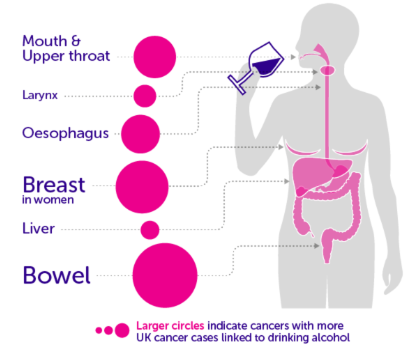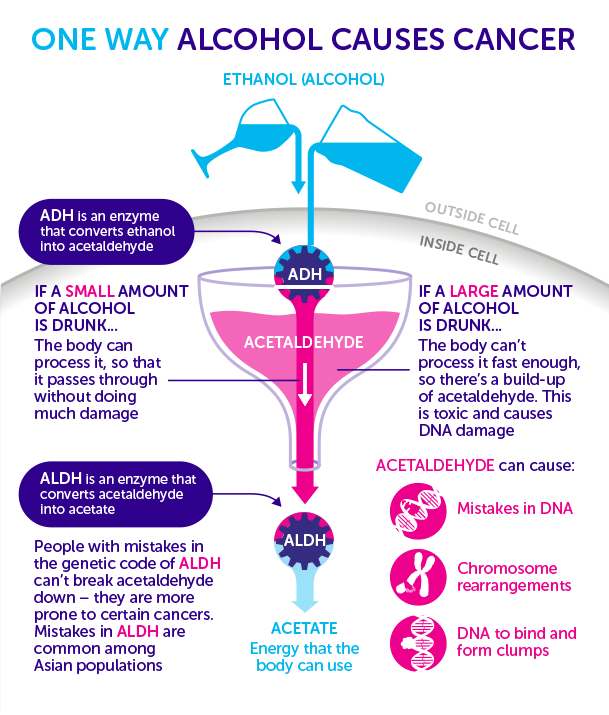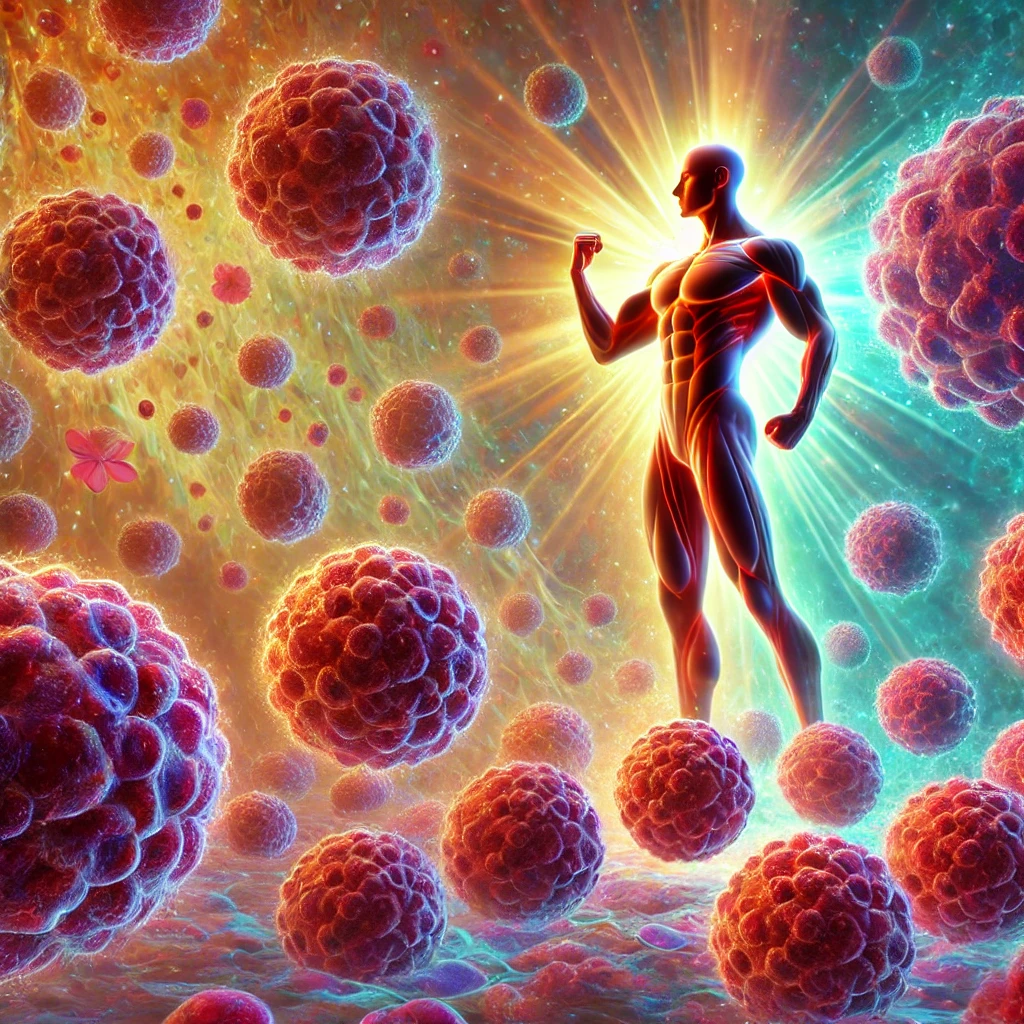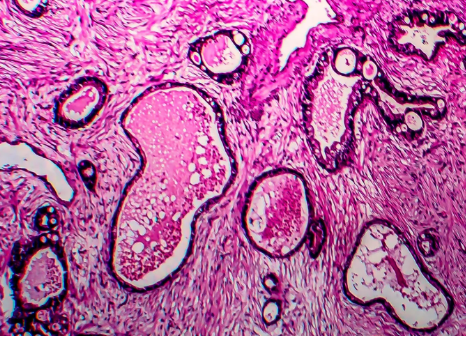“In vino veritas, in aqua sanitas” is a phrase attributed to the latin poet Horatio and means “In wine there is truth, in water there is health”. An ancient quote but still true.
Alcohol is one of those discoveries that is difficult to attribute and locate over time but has never left us.
Who hasn’t happened to raise a glass in celebration of a wedding, graduation or new birth? Yet unknowingly while drinking a glass of wine we raise not only the cup but also the risk of developing cancer, so it would be ideal not to drink or at least reduce the amount.
What is alcohol?
When we talk about alcohol in beverages we are referring to ethanol, also known as ethyl alcohol.
This small molecule is able to enter tissues and blood circulation without difficulty, so it diffuses throughout the body.
Alcohol has been classified by the World Health Organization (WHO) as a psychoactive drug, which changes the functioning of the brain, creating habituation, that is, the need to increase the dose to achieve the same effect.
According to WHO, Europe is the continent that consumes the most alcohol worldwide. This habit has negative health and social consequences.
More than 30 years ago, in 1988 the International Agency for Research on Cancer (IARC) classified it as a type 1 carcinogen, that is, among those substances for which there is sufficient scientific evidence of their ability to cause cancer.

The National Toxicology Program of the U.S. Department of Health and Human Services, in its report on carcinogens, lists alcoholic beverage consumption as a human carcinogen.
Numbers released through the Istisan report of the italian Superior Institute of Health (ISS) lead to an estimate that about 4% of cancer deaths are associated with alcohol consumption; it means that approximately 20,000 lives would have been saved if they had reduced alcohol consumption.
To date, there are several studies correlating alcohol consumption with 7 types of cancer, while studies still in progress have recorded evidence associating alcohol with an increased risk of Prostate and Pancreatic cancer and Melanoma, a skin cancer.


Researchers have hypothesized several ways in which alcohol may increase cancer risk:
- during metabolism is broken down into several components such as acetaldehyde, a substance that can damage DNA and impede repair mechanisms;
- generates reactive chemical molecules that contain oxygen, known as reactive oxygen species, which can damage DNA;
- increases levels of certain sex hormones in the blood; this is linked to an increased risk of developing breast cancer;
- increases inflammation, which is a key pathway for cancer progression and is enhanced by alcohol consumption. Frequent alcohol consumption can draw specific immune cells, monocytes and macrophages, into the tumor microenvironment (TME). These cells produce specific molecules, known as cytokines, some of which promote the inflammatory process;
- according to a study it damages the immune system, thus making the immune response less effective
Does the combination of alcohol and tobacco affect cancer risk?
Studies show that people who use both alcohol and tobacco have a higher risk of developing cancers than those who use only alcohol or only tobacco, because the risk from tobacco use is added to the risk from alcohol use. The result is a frightening mix.
Does the genetic component influence the risk of alcohol-related cancers?
The risk of alcohol-related cancers is also influenced by a person’s genetic component, particularly the genes that lead to the production of proteins involved in the breakdown (metabolization) of alcohol.
The body metabolizes alcohol through the activity of a protein called alcohol dehydrogenase (ADH), which converts ethanol to acetaldehyde, which is carcinogenic.
Many individuals of Asian descent have a gene modification that leads to the production of a “superactive” form of ADH. Superactive ADH accelerates the breakdown of alcohol (ethanol) into toxic acetaldehyde. Among people of Japanese descent, carriers of this form of ADH have a higher risk of pancreatic cancer than those with the common form of ADH.
In addition to ADH, there is also the protein known as aldehyde dehydrogenase (ALDH), which breaks down toxic acetaldehyde into nontoxic substances. Some people, particularly those of Asian descent, have a defective form of the protein. People with abnormal ALDH accumulate acetaldehyde when they drink alcohol. The concentration of acetaldehyde has several unpleasant effects such that most people with this defective form are unable to consume large amounts of alcohol and therefore have a low risk of developing cancer.
However, some individuals with the defective form of ALDH may become tolerant to the unpleasant effects of acetaldehyde and consume large amounts of alcohol, so they have a higher risk of developing cancer.


Awareness about the danger of this substance to our health is still low. Eliminating alcohol completely is difficult, but with our behavior we can make a difference. Only reducing the amount leads to decreasing the risk of developing this disease and can have a big impact on our health.
It is all in our hands.





